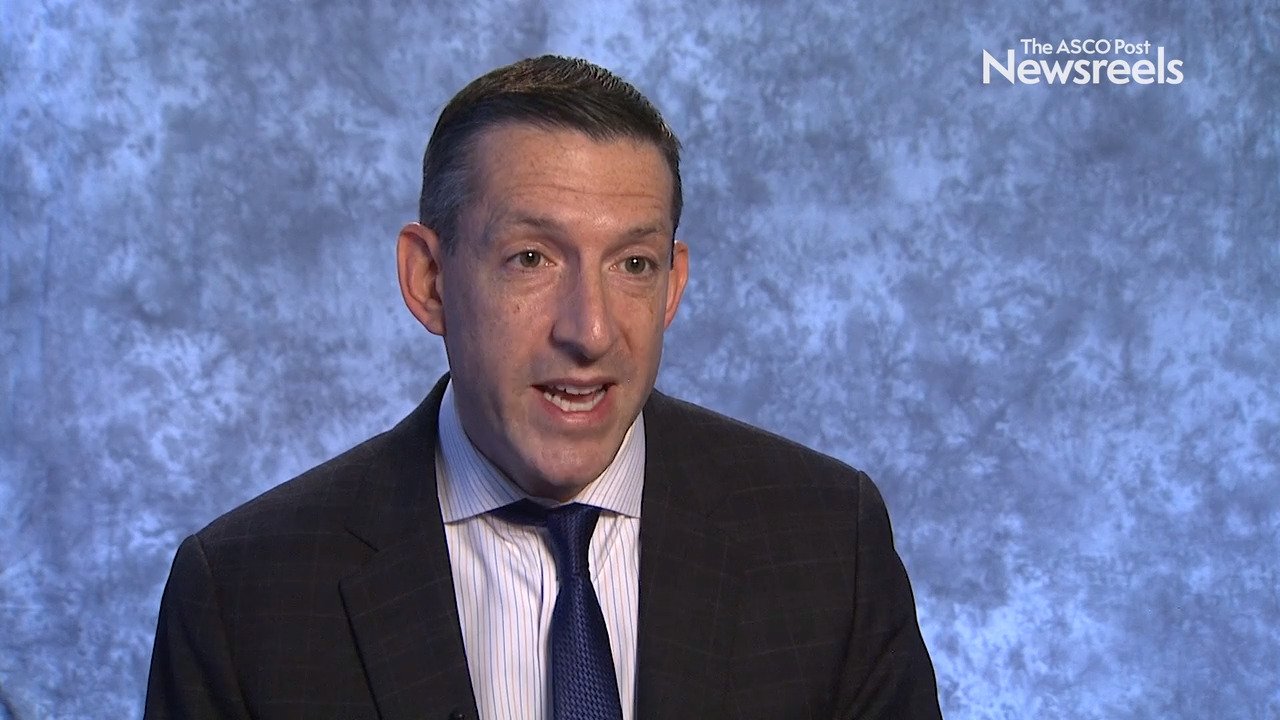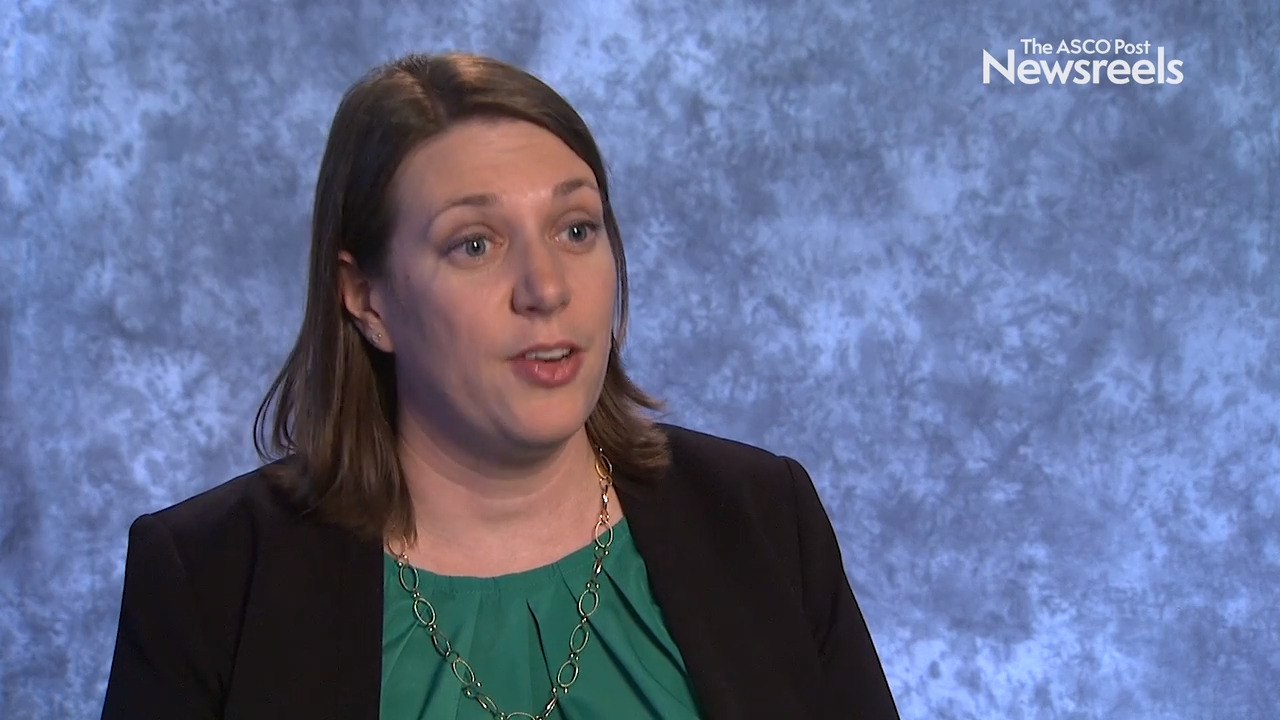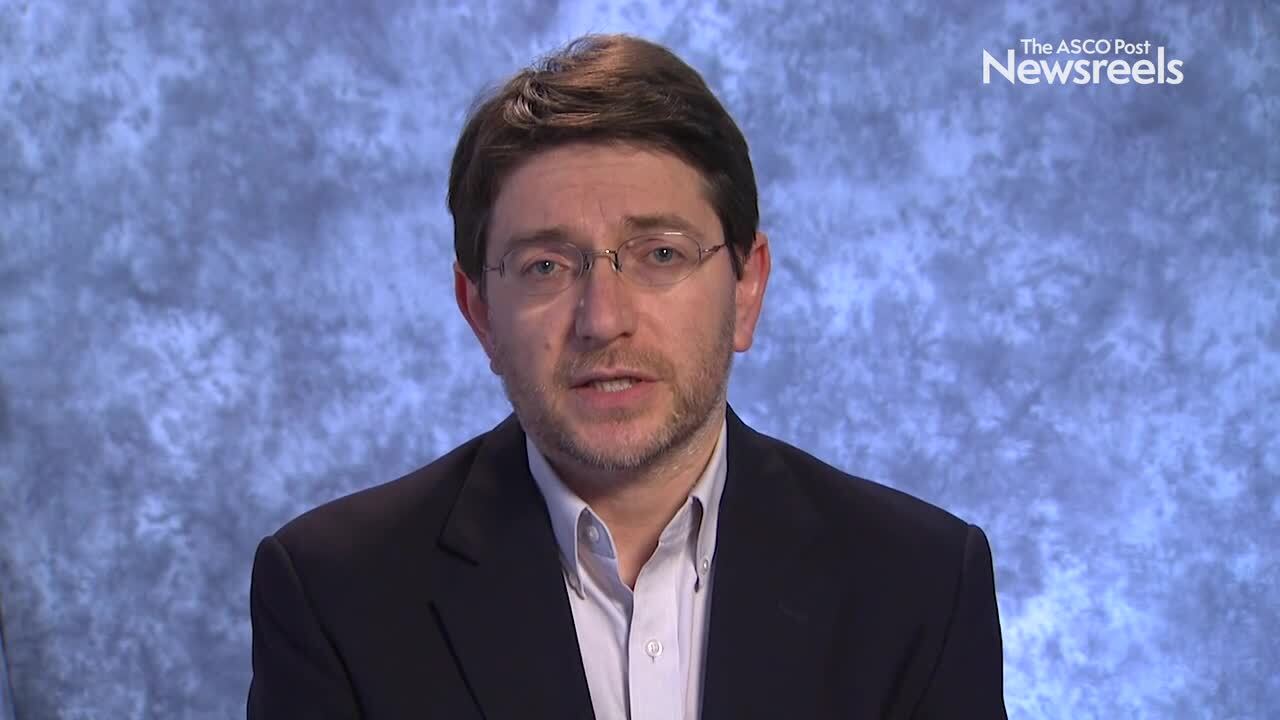Tait D. Shanafelt, MD, on CLL: Results From a Trial of the ECOG-ACRIN Cancer Research Group
2018 ASH Annual Meeting & Exposition
Tait D. Shanafelt, MD, of Stanford University, discusses phase III study findings on ibrutinib-based therapy vs standard fludarabine, cyclophosphamide, and rituximab chemoimmunotherapy in untreated younger patients with chronic lymphocytic leukemia (Abstract LBA4).
Alok A. Khorana, MD, of the Cleveland Clinic, discusses study findings on rivaroxaban thromboprophylaxis in high-risk ambulatory patients, which showed a reduction in venous thromboembolism and related death (Abstract LBA1).
Mikkael A. Sekeres, MD, of the Cleveland Clinic, discusses phase III study findings on luspatercept to treat anemia in patients with very low-, low-, or intermediate-risk myelodysplastic syndromes with ring sideroblasts who require red blood cell transfusions (Abstract 1).
Norman E. Sharpless, MD, Director of the National Cancer Institute, discusses his vision for the NCI in four key areas––big data, clinical trials, workforce development, and basic science––and how this vision affects the hematology community.
Jennifer Ann Woyach, MD, of The Ohio State University, discusses trial findings on ibrutinib alone or in combination with rituximab compared with bendamustine plus rituximab in untreated older people with chronic lymphocytic leukemia (Abstract 6).
Alexander B. Pine, MD, PhD, of Yale School of Medicine, discusses a survey gathering data on health-care providers’ practices and preferences in using direct oral anticoagulant therapy to treat venous thromboembolism.
Readers of The ASCO Post are invited to participate in this research by completing the survey, entitled: “Perspectives and Practices in Utilization of Direct Oral Anticoagulants in Patients With Cancer-Associated Venous Thromboembolism.” The survey takes approximately 3 to 4 minutes to complete and can be taken on a mobile device or a computer. The survey link is https://yalesurvey.ca1.qualtrics.com/jfe/form/SV_3l0HxrreWZhVtBz.





